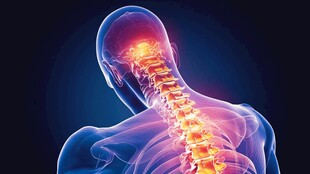Mumps Involving the Brain and Meninges
Mumps virus, a paramyxovirus, usually causes parotitis but can involve the central nervous system (CNS). Aseptic meningitis is most common; encephalitis is rarer but can be severe. CNS disease may occur with or without salivary gland swelling.
When It Happens and What It Looks Like
- Timing: CNS symptoms typically appear around the time of parotitis or shortly after, but mumps meningitis/encephalitis can occur without parotitis.
- Meningitis symptoms: fever, severe headache, neck stiffness, photophobia, nausea/vomiting.
- Encephalitis symptoms: altered mental status (confusion, lethargy), seizures, focal neurologic deficits, behavior changes; fever and headache often present.
- Other clues to mumps: ear/jaw pain with parotid swelling and tenderness; orchitis/oophoritis, pancreatitis can co‑occur.
Pathogenesis (brief)
Mumps can invade the CNS directly (neurotropism). Immune‑mediated injury has also been proposed in some cases. Vaccination reduces both incidence and severity of CNS disease.
Diagnosis
- Clinical suspicion based on compatible symptoms, epidemiology, and any parotitis.
- Lumbar puncture: CSF typically shows lymphocytic pleocytosis, normal glucose, and normal to mildly elevated protein (patterns vary).
- Microbiology: RT‑PCR/NAAT for mumps from CSF when available; buccal/oral swab RT‑PCR can support diagnosis. Serology (mumps IgM/IgG) can help but may be negative in vaccinated individuals; paired sera demonstrating IgG rise is supportive.
- Imaging/EEG: Brain MRI and/or EEG if encephalitis, focal deficits, or seizures are present to assess complications and alternative diagnoses.
- Rule‑outs: test for HSV‑1/2, enteroviruses, VZV, and bacteria as indicated; do not miss treatable causes like HSV encephalitis.
Initial Management (Do This Early)
- Stabilize airway, breathing, and circulation; manage seizures per ACLS/PALS protocols.
- Empiric therapy while awaiting results when encephalitis/meningitis is suspected:
- Start intravenous acyclovir to cover HSV encephalitis until excluded.
- Start empiric antibacterial therapy if bacterial meningitis is a concern, per local protocols.
- Admit if moderate/severe disease, dehydration, or unreliable follow‑up; ICU if neurologic decline or raised intracranial pressure (ICP).
Supportive Treatment (No Proven Antiviral for Mumps)
- Antipyretics/analgesics (acetaminophen/NSAIDs as appropriate), intravenous/oral fluids, and antiemetics.
- Control seizures with benzodiazepines and second‑line agents as needed.
- Manage raised ICP if present (head‑of‑bed elevation, careful fluids, consider hypertonic saline/mannitol with specialist input).
- Corticosteroids are not routinely indicated; reserve for specific complications under specialist guidance.
Complications and Prognosis
- Most mumps meningitis cases resolve without sequelae. Encephalitis is uncommon but can lead to hearing loss, chronic headaches, cognitive/behavioral changes, or focal deficits; mortality is generally low but varies by setting.
- Follow‑up audiology is reasonable after CNS disease or if hearing changes occur.
Prevention and Public Health
- Vaccination: two doses of MMR (measles‑mumps‑rubella) provide good protection and reduce the risk of CNS involvement.
- Isolation: droplet precautions and exclusion from school/work for 5 days after parotitis onset (or from first respiratory symptoms if no parotitis). In healthcare, use droplet and standard precautions.
- Reporting: mumps is notifiable in many regions; notify public health to aid outbreak control.
When to Seek Urgent Care
- Severe headache with neck stiffness, confusion, seizures, new weakness, severe vomiting, or any rapid neurologic change.
Educational information only; management of suspected CNS infection should be guided by clinicians with access to urgent diagnostics and monitoring.







